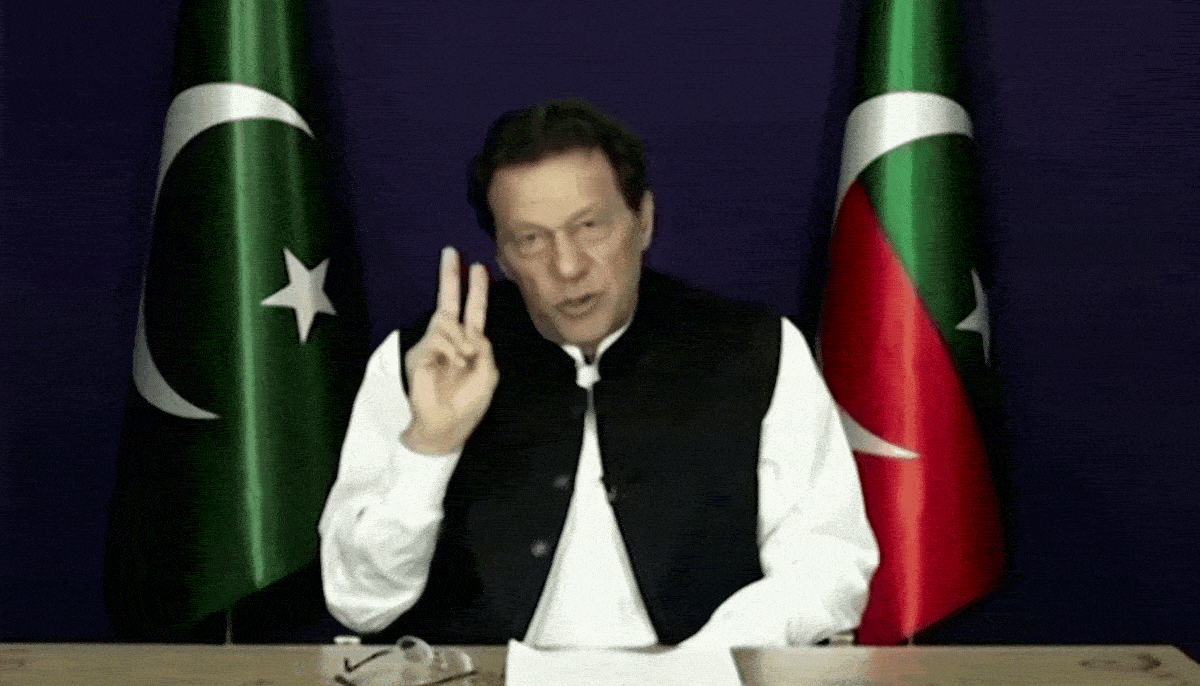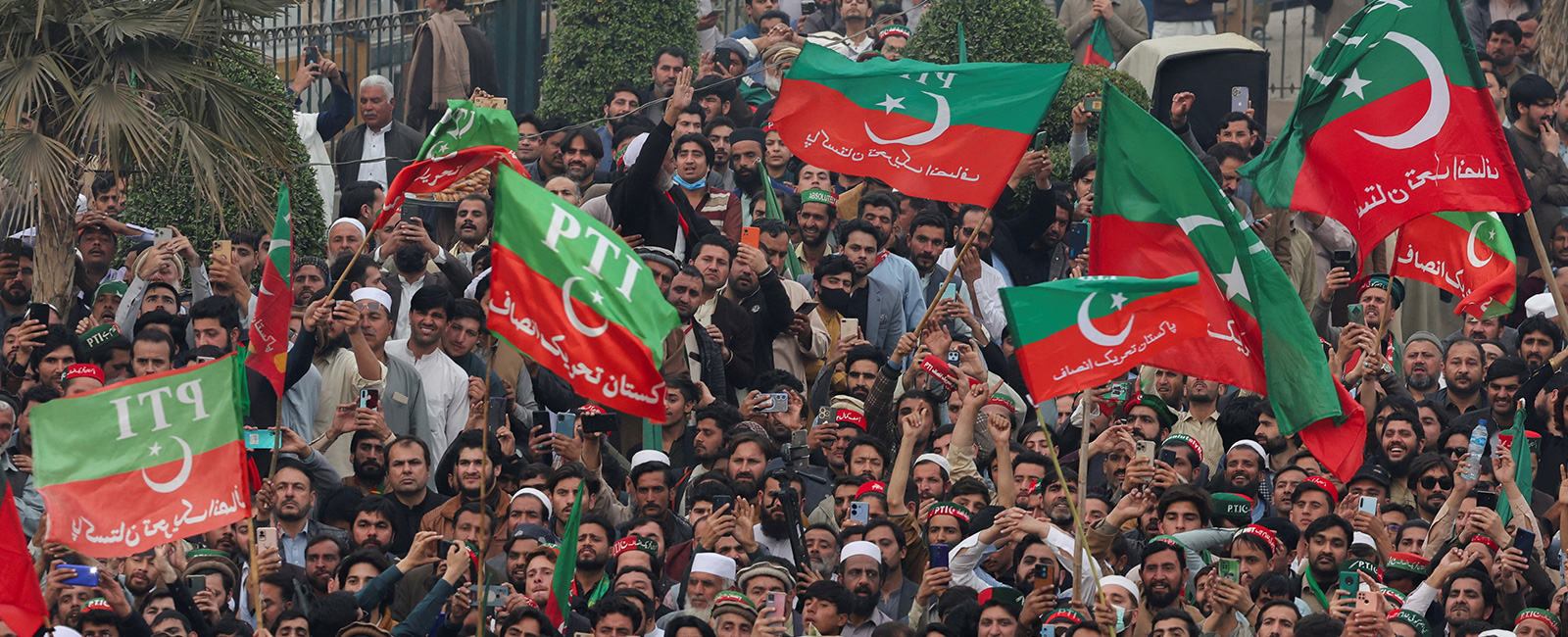Ban on PTI: Filler or fact
PML-N's harsh criticism of judiciary following recent decision on reserved seats may not sit well with judiciary, serious legal minds

Political response against the government's move to ban Pakistan Tehreek-e-Insaf (PTI), arguably the country’s largest political party, looked like a non-starter as the government itself was on the back foot within 24 hours after the categorical statement made by Federal Information Minister Atta Tarrar that the ban was on the cards and a reference would be filed in the Supreme Court after cabinet approval.
Following reactions from political parties, civil society, and other segments of society, Deputy Prime Minister Ishaq Dar clarified the information minister's statement in his way. Dar said: “No final decision has been taken yet, and Pakistan Muslim League-Nawaz (PML-N) would first take its allies and the Parliament into confidence.”
The most compact and mature response came from the party which had faced such a ban in the past, and whose leadership had suffered more than anyone else. Even PTI and its founder Imran Khan can learn a few lessons from Awami National Party (ANP) veteran Asfandyar Wali, who, despite suffering from multiple ailments, opposed the move in very clear terms. “The move is emotional and can’t be supported,” he said in a statement. “We experienced such a move with the National Awami Party (NAP) in the 70s, but we are still here with a different name after the ban,” he added.

NAP, the most powerful left-wing party back in the day, comprising nationalists and communists, was banned during former prime minister Zulfiqar Ali Bhutto’s government in the 70s. In what was described as one of Bhutto’s biggest political blunders, the government first dissolved the NAP government in Balochistan, after which the Jamiat Ulema-e-Islam (JUI) and NAP coalition government in the then North-West Frontier Province (NWFP) — now Khyber Pakhtunkhwa (KP) — resigned in protest. This was followed by a military operation in Balochistan. Bhutto’s unfortunate action was a bid to seek support from the right-wing and religious parties and due to the pressure from the Shah of Iran, who at that time was taking care of US interests in the region. Later, General Zia ul Haq used both the religious and the NAP card to impose martial law on July 5, 1977. Both religious parties, particularly Jamaat-e-Islami (JI), as well as some of the NAP leadership, provided ‘silent support’ to Zia in the execution of Bhutto.
Historically, several political parties have been banned in Pakistan. The Communist Party of Pakistan (CPP) was banned in 1954. Jukto Front, another left-wing entity, which completely wiped out the Pakistan Muslim League from East Pakistan in the 1954 elections, met similar fate. Jamaat-e-Islami (JI) was banned in 1963, but this decision was overturned by the West Pakistan High Court. The Awami League (AL) was banned in 1971 after it swept the 1970 polls. The ban on NAP also ended in mere embarrassment for the rulers. So, will PML-N and its allies want to go down in history as civilians who banned civilians from participating in political activities, or do they want to be remembered as the ones who countered their opponents politically?

So, was it merely a filler or rather a half-baked as well as hurried move by the PML-N leadership to gauge possible reactions from allies and other segments of society before making any formal decision? Otherwise, it's unclear why Tarar made such a headline. He could have waited until the proposal was presented before the cabinet. Was he instructed to do so by the leadership after Prime Minister Shehbaz Sharif, Chief Minister of Punjab Maryam Nawaz, and PML-N supreme leader Mian Mohammad Nawaz Sharif? If it wasn't solely an act for testing purposes, it's a very naïve move, especially considering the mood of the superior judiciary. Did they even intend to test the superior judiciary, particularly after the recent Supreme Court decision on the reserved seats? The government has already filed a ‘review petition’ even before the detailed judgment of 8-5. If enforced, this would increase PTI's tally in the National and Provincial Assemblies, as well as in the Senate — since Senate elections were not held in KP.
The PML-N leadership's harsh criticism of the superior judiciary following the recent decision on the ‘reserved seats’ may not sit well with the judiciary and serious legal minds. What the PML-N leadership didn’t realise is that their ‘overreaction’ and criticism of superior judges might have repercussions for them.
There is no doubt that since March 2022, PML-N has lost considerable ground in Punjab, once its strongest constituency. Despite being in government after the controversial elections of February 8, 2024, and even with Maryam Nawaz — daughter of thrice Prime Minister Nawaz Sharif and often regarded as his political heir — in the office of Punjab chief minister, PML-N finds it difficult to counter PTI. It will be interesting to see whether the government will endorse the Election Commission of Pakistan (ECP) statement that they are ready for local bodies’ (LB) elections in Punjab in September.
What a turnaround it has been, as during PTI’s government, the then prime minister Imran Khan’s handpicked Chief Minister, Usman Buzdar, not only failed to hold LB polls but also dissolved the elected bodies. The Buzdar factor was the first under Imran’s government, which propelled PML-N to the forefront as it won most of the by-elections.
One must wait to see the formal reactions of Prime Minister Shahbaz Sharif, party leader Nawaz Sharif, and Maryam Nawaz regarding the move to ban PTI. On the face of it, the PML-N troika views the ban as an aggressive attempt to silence PTI and Imran Khan, overlooking the hard realities that such bans often prove counterproductive.
Some leaders believe the party missed an opportunity soon after the May 9 attacks on sensitive installations, including the Corps Commander House in Lahore. Imran has already prevailed in the Cipher case, and the foreign funding case lacked sufficient merit, as the Constitution clearly stipulates action can only be taken if a 'foreign country' supported PTI.
The only viable path for PML-N is to counter PTI politically and through good governance, not administratively, as some leaders currently contemplate.
Time is running out for the Sharifs; moves to ban PTI have proven counterproductive, and the government has yet to provide significant relief to the people. Politics revolves around opportunities and possibilities, and a 'ban' certainly won't restore public confidence.
They have already witnessed the response after the filler, and the reality of the case does not differ from fiction. Therefore, PML-N must devise a strategy to change public perception. It's a long journey ahead for Maryam Nawaz and key ally Pakistan People’s Party Chairman Bilawal Bhutto-Zardari to craft a 'political response'.
The writer is a columnist and analyst for GEO, Jang and The News. X: @MazharAbbasGEO




